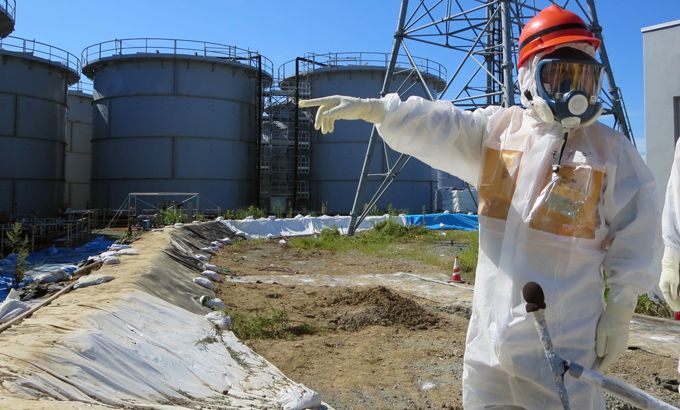Japan N-plant radiation levels hit new high
Recorded radiation levels at Fukushima nuclear facility found strong enough to kill a person within hours of exposure.

Recorded radiation levels at Japan’s crippled Fukushima nuclear plant continue to rise, with the latest readings showing a jump of more than 20 percent, according to the country’s nuclear regulator.
The station’s operator, Tokyo Electric Power Co, or Tepco, said on Wednesday that the higher levels are due to more sensitive detection equipment and that no new leaks had been detected.
Keep reading
list of 4 itemsAfter the Hurricane
World’s coral reefs face global bleaching crisis
Why is Germany maintaining economic ties with China?
Radiation hotspots have spread to three holding areas for hundreds of hastily built tanks storing water contaminated by being flushed over the three reactors that melted down at the Fukushima Daiichi plant in March 2011.
The rising radiation levels and leaks at the plant have prompted international alarm, despite the Japanese government saying on Tuesday it would step in with almost $500m to fix the growing levels of contaminated water at the plant.
Readings just above the ground near a set of tanks at the plant showed radiation as high as 2,200 millisieverts (mSv), the Nuclear Regulation Authority (NRA) said on Wednesday.
The previous high in areas holding the tanks was the 1,800 mSv recorded on Saturday.
Fatal levels
Both levels would be enough to kill an unprotected person within hours. The NRA has said the recently discovered hotspots are highly concentrated and easily shielded.
A plan was announced on Tuesday to build a wall of frozen earth in a bid to stop radiated water spilling in to the ocean.
The government also said it would invest money for the clean-up of the radiated water being stored in tanks, with a view to dumping it into the ocean when it reached safe levels.
Hiroaki Koide, assistant professor at Kyoto University Research Reactor Institute, said this plan was coming too late to make a substantial difference to the damage caused by the meltdown.
“The government has finally said they will be involved in this problem but they are still not going to be fully involved in the decommission,” he said.
“It is too little, too late.”